When Kids Lead Their Parent-Teacher Conferences
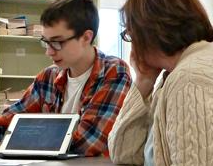
This article is on the student-led parent-teacher conferences at Pittsfield Middle High School.Student-led parent-teacher conferences happen twice a year and have replaced the old format of parent-teacher conferences at Pittsfield Middle High School, a rural New Hampshire campus that takes a “student-centered learning” approach to schooling. With this model, students are given more freedom to… Read More ›
Massachusetts Personalized Learning Network
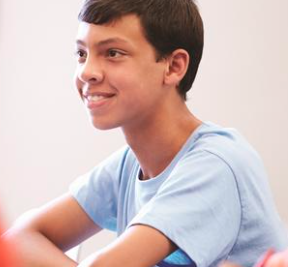
This network believes that personalized learning is the key to achieving success and educational equity for all students in the Commonwealth. With the passage of the Every Student Succeeds Act (ESSA), schools, districts, and states have the opportunity to rethink how to equip students with the knowledge, skills, and entrepreneurial spirit that will be necessary… Read More ›
Charleston County School District: Breaking Ground for Personalized Learning in Big Districts
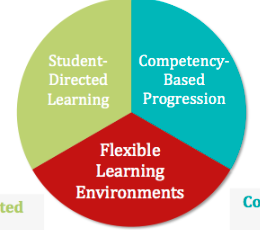
This post, which is a part of a series based on Chris Sturgis’s two days with Dr. Kristen Brittingham, Director of Personalized Learning; Sherry Kirkland, Personalized Learning Professional Development Administrator; and a team of personalized learning coaches, principals, and teachers, shares some of the most important things she’s learned. These professionals are a part of the Charleston… Read More ›
Social Learning Vs. Informal Learning: Can You Tell The Difference?

In this article, Christopher Pappas delves into the differences between social learning and informal learning, and share tips on how to use both in eLearning. Learning can happen anytime, anywhere, with those around us serving as invaluable sources of inspiration, experience, and knowledge. In many respects, the world is our teacher, but we must be… Read More ›
The Benefits and Challenges of Student-Designed Learning
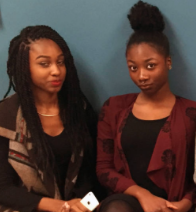
Science Leadership Academy students have many opportunities throughout their four years to choose how and what they investigate in their classes, and by senior year they are adept at choosing their own essay topics, meeting deadlines, staying focused while working online, and coming up with creative projects that matter to them personally. But when a… Read More ›
The Importance of High-School Mentors

This article stresses the importance of role models. When it comes to helping young people succeed, education experts and nonprofits are embracing the idea that a broad web of formal and informal role models is key. This video from The Atlantic documents the power that mentors can have at a defining juncture in the lives of… Read More ›
Matching Edtech Products With Neurological Learning Goals
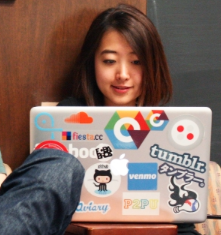
This post can help you make a list of what you want from edtech digital tools that will best suit your goals and are most consistent with neuroscience research correlations about how the brain most successfully processes information. The word edtech refers to educational technology that includes online learning activities through games, websites, computer-assisted instruction,… Read More ›
School Superintendents Association Calls for Shift to Personalized Learning in Public Policy Agenda
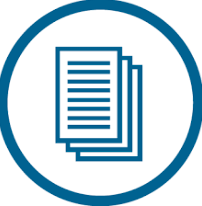
This article elucidates the public policy unveiled by the Connecticut Association of Public School Superintendents for 2016, reflecting its vision of schools that teach students to demonstrate mastery and receive more funding from the state. The organization identified three themes to advocate in 2016: equity, excellence, and innovation, with an emphasis on seeing a shift… Read More ›
Developing a Sense of Agency

This post explores how giving students a sense of agency can transform the way you impact your classroom. Students’ desire to help solve meaningful problems is too often an untapped resource hidden by the assumption that the teacher needs always to be in control of the classroom. When educators shift the paradigm from controlling to empowering,… Read More ›
The Difference Between Blended Learning and Personalized Learning, and Why it Matters

This article is about ending one-size-fits-all education. At LEAP Innovations, personalized learning is defined as learning anytime, anywhere—that is focused on, paced for, and led with the learner, and designed around each individual learner’s needs, strengths, interests, and goals. Blended learning is defined as teaching and learning infused with technology to better inform and direct the… Read More ›
Promising State Policies for Personalized Learning
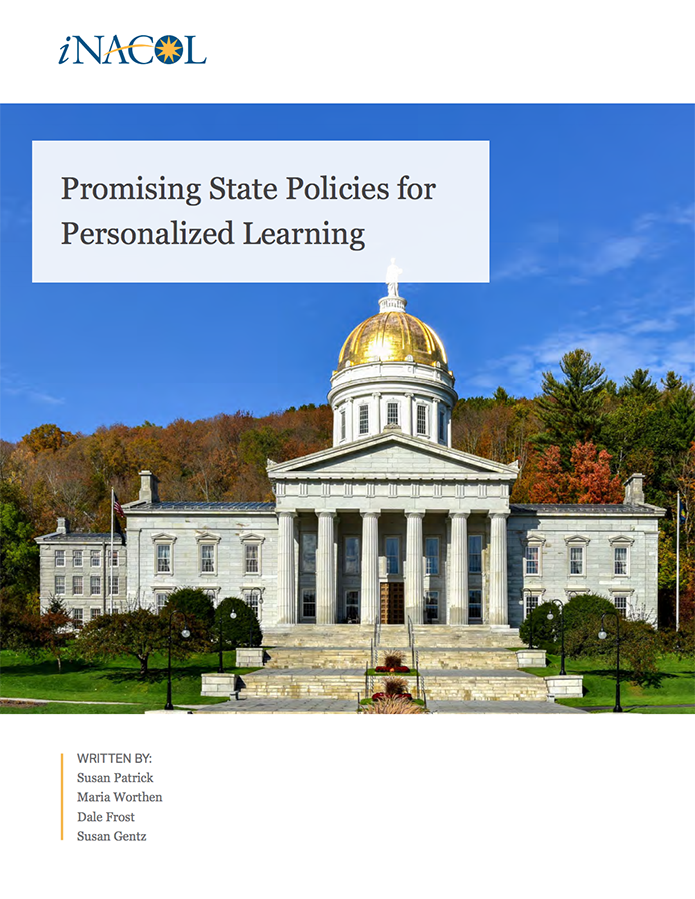
This report from The iNACOL Center for Policy Advocacy provides state policymakers with an overview of the policies that support student-centered personalized learning. As schools and districts look to grow student-centered initiatives, they may encounter policy barriers such as seat-time restrictions, graduation requirements, licensure requirements, funding rules, curriculum policies, and assessment and accountability requirements. The… Read More ›
When Celebrating Learning Differences is at the Heart of School Culture

This article explores how Individualized Education Programs (IEPS), typically created for special education students, can be a used as a model for all students and make personalization on a large scale easier and more accessible to all students. When special education teachers create IEPs for students with learning differences, a variety of professionals come together with… Read More ›